Right-wing critics of Christianity often quote from The Hour of Decision, the last work of a once widely read German historian of philosophy, Oswald Spengler. This short, graphically composed book was published in 1933, the year Adolf Hitler took power in Germany. Although it has never been proven, there is a suspicion that the Nazi government disposed of this onetime hero of the right, who did not hide his contempt for Hitler or his “plebeian” followers. Spengler supposedly referred to Christianity as the “Bolshevism of antiquity,” and today’s neo-pagan Alt-Right has picked up his description to justify its contempt for Christianity as a proto-socialist religion of slaves.
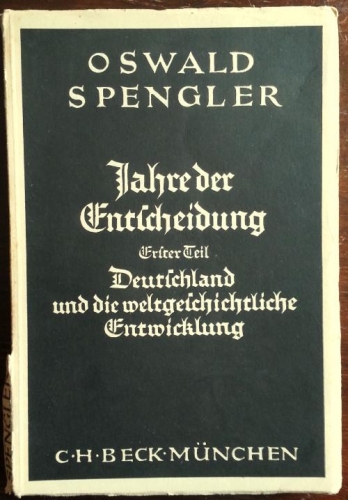 Having found the original statement in the German text, which I own, I am not sure the Alt-Right has interpreted Spengler’s drift correctly. The author is not expressing contempt for the primitive church but rather viewing it as a prototype for revolutionary movements. Spengler correctly suggests that Marx, Engels, and the Bolsheviks, despite their pretension to being “scientific socialists,” viewed the early church as a model for their own movement; as did the French anarchist Georges Sorel, who thought his labor-class revolutionary movement needed a “redemptive myth” as powerful as the one that animated early Christians.
Having found the original statement in the German text, which I own, I am not sure the Alt-Right has interpreted Spengler’s drift correctly. The author is not expressing contempt for the primitive church but rather viewing it as a prototype for revolutionary movements. Spengler correctly suggests that Marx, Engels, and the Bolsheviks, despite their pretension to being “scientific socialists,” viewed the early church as a model for their own movement; as did the French anarchist Georges Sorel, who thought his labor-class revolutionary movement needed a “redemptive myth” as powerful as the one that animated early Christians.
In Christianity, Spengler and Sorel saw a religion of the downtrodden—though they may have exaggerated the predominance of slaves and the poor in early Christianity—one which practiced communal ownership as it awaited the end of human history. Moreover, after an initial persecution and the killing of martyrs, this religious community managed to become the official religion of the Roman Empire. All other revolutionaries on the left, as opposed to revolutionary nationalists on the right (who were heavily influenced by neo-paganism), found lessons in the ascent of the early church from its humble beginnings.
Christians themselves later looked back at how their church rose from these blood-stained, painful beginnings to become a dominant world religion. They ascribed this course of events to divine Providence. Sometimes, as in the writings of St. Augustine, the trials would have to be endured by the faithful until the end of secular history. But there was an upward course in which the founding of the church presaged the end times, when Christ would return.
The centrality of this founding and its institutional arrangements played an even larger role for radical Protestants. Sects like the German Anabaptists in the 16th century and the Fifth Monarchy Men during the English Civil War in the 17th century believed they were living in a final historical age and that their attempted return to the primitive church was being undertaken in preparation for Christ’s Second Coming. Among such sectarians, of whom there were many in early modern Europe, going back to the early church was essential to their plans.
Indeed, much of the Protestant Reformation was about returning to a purer form of Christianity before papal councils and institutions borrowed from the pagan world were thought to have corrupted the true faith. Significantly for Luther and other earlier Reformers, the “fall of the church” was not seen to have occurred in the early centuries. This fall was mostly identified with the High Middle Ages and papal monarchical pretensions. But for the more radical Anabaptists, Christendom had already fallen into grievous error when the church leaders gave power over its deliberations and decisions to Roman emperors. The early church had remained uncorrupted because it was separated from political power.
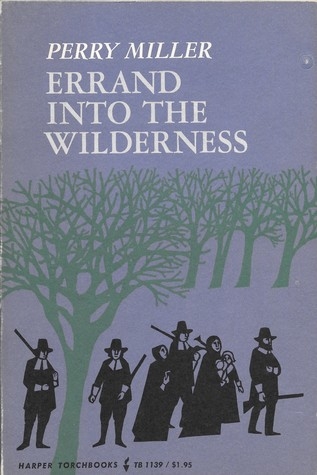 A different model, however, became prevalent in Puritanism, especially after this religious movement traveled to the New World. Perry Miller’s classic study Errand into the Wilderness (1956), leaves no doubt about the overshadowing presence of the ancient Hebrews on Puritan society and religion. The New Israelites—which is how the Puritans envisioned themselves—were bound by a covenant, just as the ancient Jews had been under the covenant of Abraham and Moses. Just as the Hebrews had gone forth from bondage to settle the Holy Land, so too were their Puritan successors summoned into the North American wilderness to carry out a divine mandate. They were to establish their own community of believers where they would build the godly city on the hill as the New Jerusalem. Puritan sermons and political ordinances are so permeated with Hebrew and Old Testament images and phrases that their borrowings from an earlier chosen people are unmistakable. Harvard, Yale, and other originally Puritan institutions encouraged the study of biblical Hebrew, and the most common Christian names given to both sexes were taken from Hebrew Scripture.
A different model, however, became prevalent in Puritanism, especially after this religious movement traveled to the New World. Perry Miller’s classic study Errand into the Wilderness (1956), leaves no doubt about the overshadowing presence of the ancient Hebrews on Puritan society and religion. The New Israelites—which is how the Puritans envisioned themselves—were bound by a covenant, just as the ancient Jews had been under the covenant of Abraham and Moses. Just as the Hebrews had gone forth from bondage to settle the Holy Land, so too were their Puritan successors summoned into the North American wilderness to carry out a divine mandate. They were to establish their own community of believers where they would build the godly city on the hill as the New Jerusalem. Puritan sermons and political ordinances are so permeated with Hebrew and Old Testament images and phrases that their borrowings from an earlier chosen people are unmistakable. Harvard, Yale, and other originally Puritan institutions encouraged the study of biblical Hebrew, and the most common Christian names given to both sexes were taken from Hebrew Scripture.
In considering why these early American settlers were so mesmerized by the example of the ancient Hebrews, we might look at the European Calvinists from whom they were theologically descended. Like the American Puritans, Protestant followers of John Calvin strongly rejected the tradition of Roman authority they found in the Catholic Church. For them, the Catholics were too heavily influenced in their authority structure and canon law by Roman paganism. The early Protestants felt it necessary to return to the Bible as a guide for building a Christian society.
Calvinists also believed that salvation came through unmerited divine election. Since all humans had fallen away from God with the sin of Adam, no mortal could earn grace through his own efforts. Indeed, any sense that humans earned grace was mere vanity on our parts, for outside of God’s will, which was inscrutable to man, there could be no salvation. Yet those who were elected had a sense of being saved and lived in a manner that comported with the undeserved grace that had been ascribed to them by an all-knowing and all-powerful Deity.
Particularly revealing for the Calvinists in general were the passages in Deuteronomy, in which the Israelites are shown two paths, either obedience to divine commandments, which will result in blessings for the people, or falling away, which will bring collective curses. In this narrative, the Puritans and other Calvinists saw the paths that were laid out for their own lives. If they grasped the signs of divine election and acted accordingly, they would prosper; if they were among the sinners, they would suffer in this life and in the next.
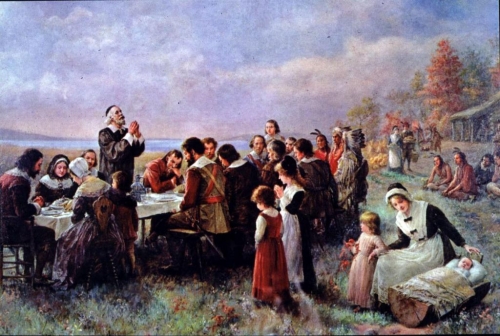
Like their ancient model, the Calvinists strongly focused on signs of divine favor or divine disfavor in this life. Preparing for the next life was not a particularly rewarding task for those who never knew for sure whether they belonged “in that number when the saints go marching in.” No matter how hard the Puritans tried to believe they were in “that number,” some doubt probably lingered in their minds. That black spiritual about the saints marching in, which first began to be sung about a hundred years ago, refers to the end times, not to the afterlife.
Millenarianism, which refers to a preoccupation with the thousand-year kingdom that would usher in Christ’s rule, became a recognizable part of American Protestant culture. Although tonier Calvinist denominations, like Congregationalists and Presbyterians, moved away from such speculative points, less upper-class denominations like Southern Baptists absorbed them. Such speculation about the end times drew from the Hebrew prophets and the Book of Daniel, as well as from the Book of Revelation in the New Testament. It also became strongly associated with an American brand of Protestantism. It was one in which fevered debates took place between Pre- and Post-Millenarians, those who believed that Christ would return before the end of secular history and those who believed that humanity would first have to endure “the tribulations” before Christ returned.
A Calvinist legacy, with a strong Old Testament orientation, and various forms of millenarianism shaped American culture and politics. A once-deeply-embedded Protestant work ethic, which originated in Calvinist moral theology; an emphasis on public morality, the content of which went back to the Mosaic law; and a view of religion as above all an individual commitment, have roots in America’s Calvinist founding. The willingness to tolerate religious dissenters, which by the late 18th century had become a more-or-less prevalent American view, also went back to the Protestant idea that religion depended on the individual’s experience of faith, independent of priestly mediation or hierarchical structures.
Finally, republican government fit with the Calvinist-Puritan historical experience. In Europe, Catholic and High Church Anglican monarchs had opposed the proliferation of Protestant sects and had often been at war with the Calvinists. When James I tried to unite the Anglican and Presbyterian confessions in the late 16th century, the deal breaker was the Scottish Calvinist refusal to accept the office of bishop. To which James famously and presciently responded, “No bishop, no king.” The political and ecclesiastical chain of command understandably went together in the king’s mind.
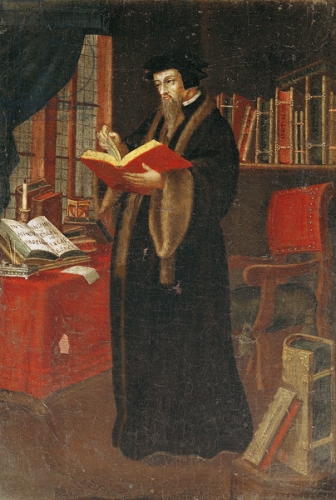 These Protestant traditions have served the American people well. Religious freedom but not indifferentism, the enforcement of strong communal moral standards, and the expectation that the young will apply themselves diligently to their work and study as a religious act, have all benefited our country. So have the Calvinist Protestant suspicion of power in the hands of earthly princes and an awareness of the need to rein in such political actors. One need not denigrate other political or religious traditions that suit other societies to recognize the strengths of what has worked well in this country. It is also the case that the Puritan-Calvinist value of teaching the young to study biblical and classical languages was a spur to education and the founding of great universities in early America.
These Protestant traditions have served the American people well. Religious freedom but not indifferentism, the enforcement of strong communal moral standards, and the expectation that the young will apply themselves diligently to their work and study as a religious act, have all benefited our country. So have the Calvinist Protestant suspicion of power in the hands of earthly princes and an awareness of the need to rein in such political actors. One need not denigrate other political or religious traditions that suit other societies to recognize the strengths of what has worked well in this country. It is also the case that the Puritan-Calvinist value of teaching the young to study biblical and classical languages was a spur to education and the founding of great universities in early America.
Still, the Protestant legacy has had its problematic side, much of which is related to the idea of divine election. At least in American politics, it has expressed itself in a moral arrogance that has nurtured a missionary foreign policy from which our country cannot seem to break free. Martin E. Marty, a Lutheran scholar, entitled his history of American Protestantism Righteous Empire (1970). The American government’s relation with other countries has usually meant trying to export our “democratic values” and “human rights” while making others more like ourselves. That means stressing whatever our dominant values are at any given time, be it traditional Judeo-Christian morality or LGBT self-expression. But whatever those rights and values are, they are supposedly universally valid because they come from an “exceptional nation” (read: Calvin’s ingathering of the elect); and it has been America’s destiny to become “a city on a hill,” albeit not in the manner intended by Governor Winthrop of Massachusetts who constructed that phrase in the 17th century. We end wars against the wicked with demands for unconditional surrender and then we hold war trials so that our virtues can stand out more brightly in relation to those reprobates whom we have just defeated.
 Calvinist scholar James Kurth (photo) once defined “the American Creed” that dominated American views of international relations in the 20th century as a degraded form of American Protestant theology:
Calvinist scholar James Kurth (photo) once defined “the American Creed” that dominated American views of international relations in the 20th century as a degraded form of American Protestant theology:
The elements of the American Creed were free markets and equal opportunity, free elections and liberal democracy, and constitutionalism and the rule of law. The American Creed definitely did not include as elements hierarchy, community, tradition, and custom. Although the American Creed was not itself Protestant, it was clearly the product of a Protestant culture—a sort of secularized version of Protestantism…
Although Kurth views this American missionary politics as peculiarly American and as a “declension of the Reformation,” he also stresses its rootedness in the individualism and repugnance for hierarchy that came out of older Protestant thinking. This creed is intolerant of societies and countries that display traditional ways of life. It requires redeemed Americans to raise the less fortunate or perverse out of their degraded conditions. According to Kurth, one has yet to figure out how to keep the Protestant baby while disposing of the unwanted bathwater. But as the American Creed has become more widespread, much of its original Protestant character has eroded. Today, Protestants are far from the only ones boasting about American exceptionalism and an American mission.



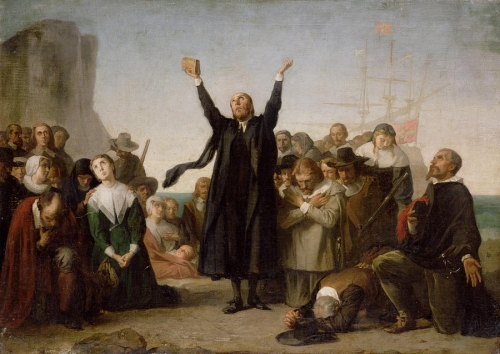

 del.icio.us
del.icio.us
 Digg
Digg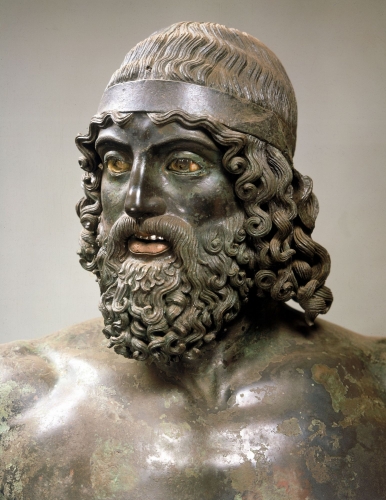
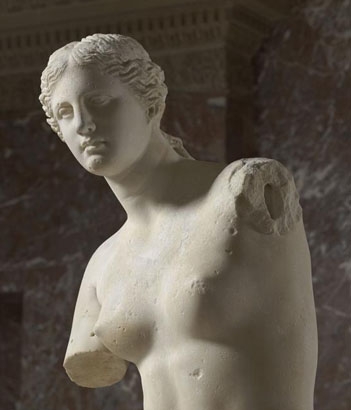
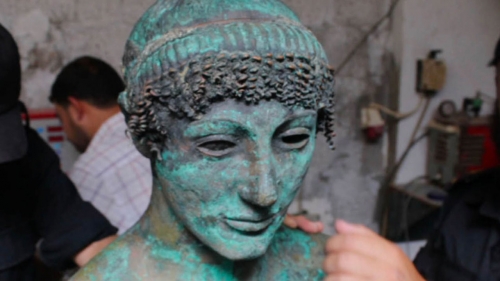
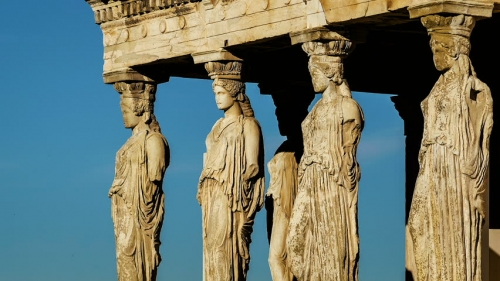
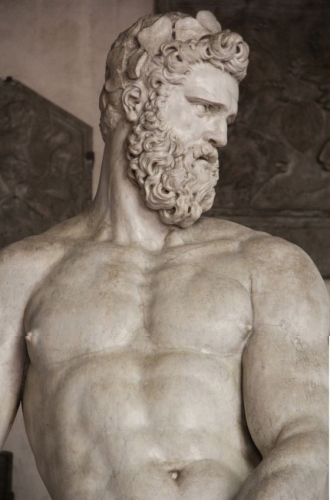
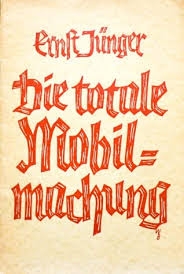
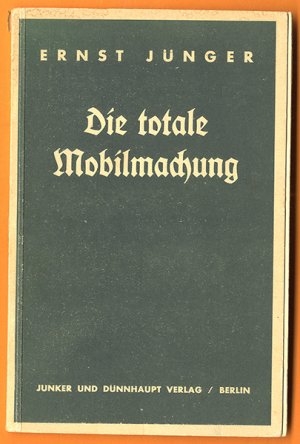
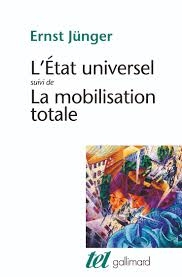 Quatrième extrait
Quatrième extrait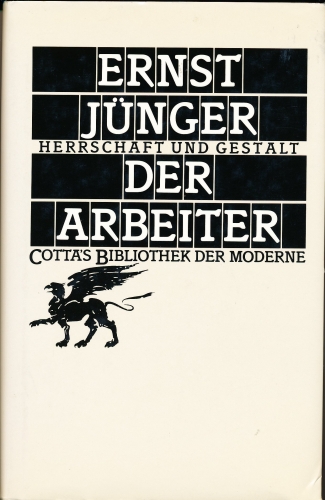 Sixième extrait
Sixième extrait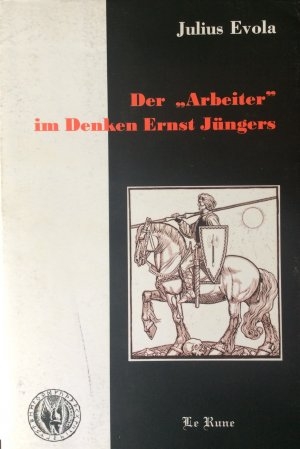 Les masques tomberaient-ils, malgré la propagande, en dépit de la mobilisation ? Certains d’entre nous, trop peu bien entendu, ont pris goût à une vie décélérée et exempte des tourbillons et de l’agitation du quotidien, réalisent que cette liberté retrouvée les renvoie, par contraste, à leur ordinaire condition de servilité, se disent qu’au fond ils se satisferaient bien d’un prolongement de cette parenthèse enchantée. Ils ont même retrouvé une certaine forme de mesure et de sérénité dont le fol emballement de la vie moderne les avait privés (et ils en furent les complices volontaires, nous le savons bien !) : mais que valent ces gouttes d’eau dans l’océan de dispositifs digitaux, que peuvent ces minuscules prises de conscience contre le Grand Déferlement ?
Les masques tomberaient-ils, malgré la propagande, en dépit de la mobilisation ? Certains d’entre nous, trop peu bien entendu, ont pris goût à une vie décélérée et exempte des tourbillons et de l’agitation du quotidien, réalisent que cette liberté retrouvée les renvoie, par contraste, à leur ordinaire condition de servilité, se disent qu’au fond ils se satisferaient bien d’un prolongement de cette parenthèse enchantée. Ils ont même retrouvé une certaine forme de mesure et de sérénité dont le fol emballement de la vie moderne les avait privés (et ils en furent les complices volontaires, nous le savons bien !) : mais que valent ces gouttes d’eau dans l’océan de dispositifs digitaux, que peuvent ces minuscules prises de conscience contre le Grand Déferlement ? 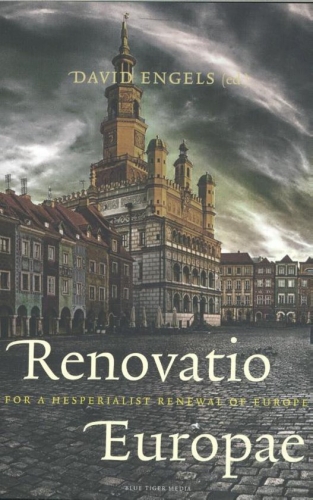
 Renovatio Europæ est un recueil collectif issu d’« un projet de recherche basé à l’Instytut Zachodni à Poznan (Pologne) (p. 9) ». David Engels ne cache pas vouloir susciter « un conservatisme révolutionnaire (p. 225) » et, de ce fait, concevoir « une idéologie politique sceptique face à l’Union européenne, mais favorable à l’idée européenne (p. 22) ». Il entend « introduire, pour désigner un amour patriotique pour une Europe unifiée, basée non pas seulement sur des valeurs universalistes, mais aussi conservatrices, le terme d’« hespérialisme » – terme dérivé de l’appellation grecque de l’extrême Occident du monde connu d’antan, et formant le complément, voire l’opposition au terme d’« européisme », qui désigne habituellement un soutien non critique de l’Union européenne actuelle et de son idéologie dominante : la “ bienpensance ” politiquement correcte (p. 16) ». Ainsi considère-t-il que « l’hespérialisme est uniquement conservateur dans la mesure où il apprécie les valeurs du passé; mais en fait, on pourrait le décrire, tout aussi légitimement, comme orienté résolument vers le futur, même comme révolutionnaire (p. 226) ».
Renovatio Europæ est un recueil collectif issu d’« un projet de recherche basé à l’Instytut Zachodni à Poznan (Pologne) (p. 9) ». David Engels ne cache pas vouloir susciter « un conservatisme révolutionnaire (p. 225) » et, de ce fait, concevoir « une idéologie politique sceptique face à l’Union européenne, mais favorable à l’idée européenne (p. 22) ». Il entend « introduire, pour désigner un amour patriotique pour une Europe unifiée, basée non pas seulement sur des valeurs universalistes, mais aussi conservatrices, le terme d’« hespérialisme » – terme dérivé de l’appellation grecque de l’extrême Occident du monde connu d’antan, et formant le complément, voire l’opposition au terme d’« européisme », qui désigne habituellement un soutien non critique de l’Union européenne actuelle et de son idéologie dominante : la “ bienpensance ” politiquement correcte (p. 16) ». Ainsi considère-t-il que « l’hespérialisme est uniquement conservateur dans la mesure où il apprécie les valeurs du passé; mais en fait, on pourrait le décrire, tout aussi légitimement, comme orienté résolument vers le futur, même comme révolutionnaire (p. 226) ».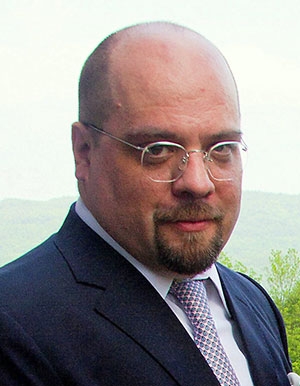 L’Italien Alvino-Mario Fantini souhaite l’apparition d’« une Droite révolutionnaire (p. 165) » dont la tâche principale serait « de reconstruire la civilisation occidentale sous toutes ses formes et de la restaurer afin de lui donner une place proéminente dans notre culture (p. 174) ». S’agit-il de la civilisation occidentale ou bien de la civilisation européenne ? Cet auteur ne définit pas l’Occident qu’il confond avec une hypothétique « Chrétienté du XXIe siècle » qu’il appelle de ses vœux. Rêve-t-il en néo-guelfe à de nouvelles compagnies missionnaires auprès des sociétés européennes si bien qu’après la « délaïcisation » réalisée se manifesterait « la profession visible des anciennes fois par de jeunes hommes arborant kippa et papillotes et par de vieux curés en soutane et béret (p. 175) » ? Et pourquoi pas le contraire ? Quelle place accorder aux communautés historiques musulmanes (Pomaks de Grèce, Bosniaques, musulmans d’Albanie, Gorans, Tatars de Pologne, Turcs de Bulgarie, etc.) ? Serait-il hostile au port du hijab et du tchador ? Ce croyant ne se sent-il pas solidaire des musulmanes exclues des collèges et des lycées laïques français parce qu’elles anticipaient une mesure prophylactique en vigueur en 2020 ? Sa « Chrétienté du XXIe siècle » ressemble beaucoup à l’ordre moral petit-bourgeois du XIXe siècle.
L’Italien Alvino-Mario Fantini souhaite l’apparition d’« une Droite révolutionnaire (p. 165) » dont la tâche principale serait « de reconstruire la civilisation occidentale sous toutes ses formes et de la restaurer afin de lui donner une place proéminente dans notre culture (p. 174) ». S’agit-il de la civilisation occidentale ou bien de la civilisation européenne ? Cet auteur ne définit pas l’Occident qu’il confond avec une hypothétique « Chrétienté du XXIe siècle » qu’il appelle de ses vœux. Rêve-t-il en néo-guelfe à de nouvelles compagnies missionnaires auprès des sociétés européennes si bien qu’après la « délaïcisation » réalisée se manifesterait « la profession visible des anciennes fois par de jeunes hommes arborant kippa et papillotes et par de vieux curés en soutane et béret (p. 175) » ? Et pourquoi pas le contraire ? Quelle place accorder aux communautés historiques musulmanes (Pomaks de Grèce, Bosniaques, musulmans d’Albanie, Gorans, Tatars de Pologne, Turcs de Bulgarie, etc.) ? Serait-il hostile au port du hijab et du tchador ? Ce croyant ne se sent-il pas solidaire des musulmanes exclues des collèges et des lycées laïques français parce qu’elles anticipaient une mesure prophylactique en vigueur en 2020 ? Sa « Chrétienté du XXIe siècle » ressemble beaucoup à l’ordre moral petit-bourgeois du XIXe siècle.  Autre énormité proférée par la « Figariste » de l’ouvrage : « Quand on a colonisé et utilisé des peuples qui désormais parlent français, on est responsable d’eux (p. 89). » Chantal Delsol ne comprend pas que le temps des colonies de grand-papy chanté par Michel Sardou n’existe plus. La Décolonisation est passée par là… C’est avec de tels arguments infantilisants que l’Afrique préfère se victimiser plutôt que de prendre son destin en main. Chantal Delsol n’évoque d’ailleurs pas le pillage organisé des richesses du Continent noir (de l’Asie, de l’Amérique latine et de l’Océanie) par les sociétés occidentales. Son point de vue se rapproche de celui d’Yves de Kerdrel, macroniste militant et ancien responsable du flotteur droitard du cosmopolitisme, Valeurs actuelles. « Au nom du droit de la mer, de l’entraide des marins et surtout du respect de la vie, je demande aux autorités françaises d’accorder à L’Aquarius le droit d’accoster à Marseille. Notre identité et notre civilisation sont menacées par la PMA et non par 58 réfugiés (3). » On pense strictement le contraire d’autant que dans le cadre d’un État vrai, néo–spartiate, la généralisation de la PMA favorisera la natalité autochtone.
Autre énormité proférée par la « Figariste » de l’ouvrage : « Quand on a colonisé et utilisé des peuples qui désormais parlent français, on est responsable d’eux (p. 89). » Chantal Delsol ne comprend pas que le temps des colonies de grand-papy chanté par Michel Sardou n’existe plus. La Décolonisation est passée par là… C’est avec de tels arguments infantilisants que l’Afrique préfère se victimiser plutôt que de prendre son destin en main. Chantal Delsol n’évoque d’ailleurs pas le pillage organisé des richesses du Continent noir (de l’Asie, de l’Amérique latine et de l’Océanie) par les sociétés occidentales. Son point de vue se rapproche de celui d’Yves de Kerdrel, macroniste militant et ancien responsable du flotteur droitard du cosmopolitisme, Valeurs actuelles. « Au nom du droit de la mer, de l’entraide des marins et surtout du respect de la vie, je demande aux autorités françaises d’accorder à L’Aquarius le droit d’accoster à Marseille. Notre identité et notre civilisation sont menacées par la PMA et non par 58 réfugiés (3). » On pense strictement le contraire d’autant que dans le cadre d’un État vrai, néo–spartiate, la généralisation de la PMA favorisera la natalité autochtone.
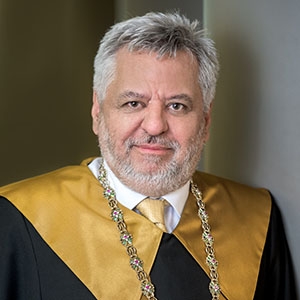 Andras Lanczi ose la question cruciale : « Une constitution peut-elle créer une identité ? (p. 65) » Oui, si on observe les États-Unis; non si l’on regarde les précédents de l’Union Soviétique et de la Yougoslavie titiste. David Engels trace néanmoins les grands traits d’une nouvelle constitution européenne. Il dénonce au préalable le souverainisme stato-national qui amalgame « de manière presqu’insupportable les institutions de l’Union européenne avec l’idée européenne elle-même (p. 21) ». Oui, les nationaux-souverainistes « europhobes » « ignorent […] dangereusement le problème que la civilisation occidentale du XXIe siècle ne pourra survivre que si toutes les nations européennes forment un seul front commun contre les dangers qui pourraient venir de l’Est, de l’Ouest ou du Sud (pp. 21 – 22) ». Ces anti-européens condamnent les institutions alors que la responsabilité de leur nuisance incombe à des personnes telles Jacques Santer, José Manuel Barroso ou Josef Borrel (4).
Andras Lanczi ose la question cruciale : « Une constitution peut-elle créer une identité ? (p. 65) » Oui, si on observe les États-Unis; non si l’on regarde les précédents de l’Union Soviétique et de la Yougoslavie titiste. David Engels trace néanmoins les grands traits d’une nouvelle constitution européenne. Il dénonce au préalable le souverainisme stato-national qui amalgame « de manière presqu’insupportable les institutions de l’Union européenne avec l’idée européenne elle-même (p. 21) ». Oui, les nationaux-souverainistes « europhobes » « ignorent […] dangereusement le problème que la civilisation occidentale du XXIe siècle ne pourra survivre que si toutes les nations européennes forment un seul front commun contre les dangers qui pourraient venir de l’Est, de l’Ouest ou du Sud (pp. 21 – 22) ». Ces anti-européens condamnent les institutions alors que la responsabilité de leur nuisance incombe à des personnes telles Jacques Santer, José Manuel Barroso ou Josef Borrel (4).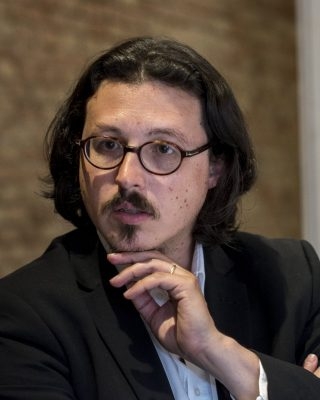 Bien que désigné par le suffrage universel direct, ce président de l’Union rénovée ne bénéficie que de pouvoirs limités. « D’un côté, le Président se consacrerait à la politique extérieure, représentant l’Union européenne au Conseil de sécurité permanent des Nations Unies (sur base d’une fédéralisation du siège français), et, en cas de conflit, dirigerait les opérations des forces européennes. D’un autre côté, le Président tenterait de régler les conflits qui se présenteraient soit entre nations européennes, soit entre celles-ci et l’Union elle-même, en présidant une cour d’arbitrage permanente dont le composition et le mode de scrutin devraient, une fois de plus, favoriser le compromis et l’unanimité (p. 197). » La nouvelle Union européenne, on le voit, dispose d’« une force militaire européenne, composée, en temps de paix, par un cœur d’unités proprement européennes, appuyées par des contingents fixes des différents États-nations et dotées de capacités nucléaires (p. 198) ». Dans ces conditions, « l’Europe pourrait, à nouveau, devenir un véritable “ Sacrum Imperium ” et renouer avec sa dimension transcendantale, perdue depuis longtemps au profit du rationalisme, du matérialisme, du relativisme et du cynisme (p. 204) ». David Engels expose rapidement les bases géopolitiquement instables pour cause d’atlantisme d’une Confédération européenne.
Bien que désigné par le suffrage universel direct, ce président de l’Union rénovée ne bénéficie que de pouvoirs limités. « D’un côté, le Président se consacrerait à la politique extérieure, représentant l’Union européenne au Conseil de sécurité permanent des Nations Unies (sur base d’une fédéralisation du siège français), et, en cas de conflit, dirigerait les opérations des forces européennes. D’un autre côté, le Président tenterait de régler les conflits qui se présenteraient soit entre nations européennes, soit entre celles-ci et l’Union elle-même, en présidant une cour d’arbitrage permanente dont le composition et le mode de scrutin devraient, une fois de plus, favoriser le compromis et l’unanimité (p. 197). » La nouvelle Union européenne, on le voit, dispose d’« une force militaire européenne, composée, en temps de paix, par un cœur d’unités proprement européennes, appuyées par des contingents fixes des différents États-nations et dotées de capacités nucléaires (p. 198) ». Dans ces conditions, « l’Europe pourrait, à nouveau, devenir un véritable “ Sacrum Imperium ” et renouer avec sa dimension transcendantale, perdue depuis longtemps au profit du rationalisme, du matérialisme, du relativisme et du cynisme (p. 204) ». David Engels expose rapidement les bases géopolitiquement instables pour cause d’atlantisme d’une Confédération européenne.